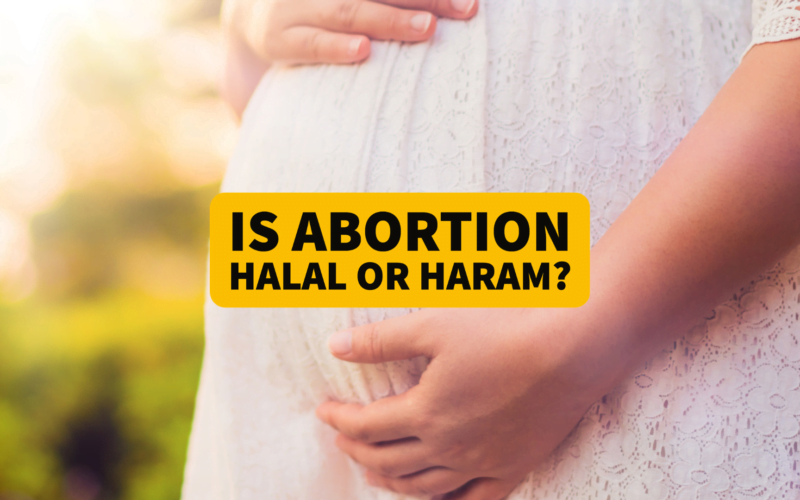Learn about the Islamic perspective on abortion. Find out if it is considered haram and explore the views of Muslim scholars.
Islam is a universal religion, and through the holy Quran, taught life teachings to all mankind even in small things. There is no exception in the case of abortion, Islam has views on this act.
Before explaining the various views of Islamic law experts, it should be underlined first that a person who becomes pregnant without prior legal marriage and then has an abortion is illegitimate (haram) and has a double sin, namely because of an extramarital relationship and the practice of abortion.
Therefore, this post only focuses on discussing women who are legally married and intend to have an abortion for some reason.
Is Abortion Halal or Haram?
Abortion is Haram.
As we know, the majority of scholars forbid abortion without a clear reason as explained (Quran Al-Isra: 31 & 33), (Quran An-Nisa: 93).
But there are also some scholars who allow abortion with very strict conditions, which include:
- The threat of danger to the mother
- There are abnormalities found in the fetus
- The age of pregnancy is not yet 120 days old. (Sahih al-Bukhari No. 3208, (Sahih Muslim No. 2643a) Although there are variations among Islamic scholars, some Islamic scholars (Zaidiyah, Hanafi, Syafi’i) agree that termination of pregnancy due to abnormalities in the fetus is permissible before 120 days of gestation and after that abortion is prohibited altogether, even in the presence of fetal abnormalities. The exception to this rule is when there is a confirmed risk to the mother’s life and fetal death.
Evidence
Is It Safe For Muslims To Do It?
It is unsafe and strictly forbidden (haram) for a Muslim to have an abortion for no apparent reason or for fear of not economically being able to raise their baby, or for an abortion to be carried out due to adultery.
However, if an abortion is forced to be carried out to save the mother’s life, then it is permissible for a Muslim to do it and even Islam makes it obligatory.
This is in accordance with the rules of fiqh which state that if there is a contradiction between two mufsadah, then what is to be avoided is the one with the greatest harm (mudharat) by doing the one with the lightest mudharat.
Bottom Line
Based on the explanation above, it can be concluded that the majority of scholars forbid abortion without emergency reasons but allow it if there is an emergency reason such as the pregnancy endangering the mother’s life.
But exceptions to the rules that allow abortion in Islam are regulated by strict conditions.
Got a question? Feel free to ask mufti and get quick answers.
MORE:


 WhatsApp Channel
WhatsApp Channel
 Instagram
Instagram
 Facebook
Facebook
 X (Twitter)
X (Twitter)
 Google News
Google News